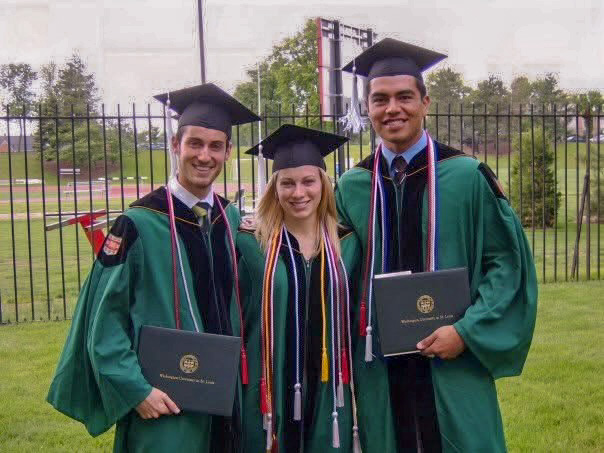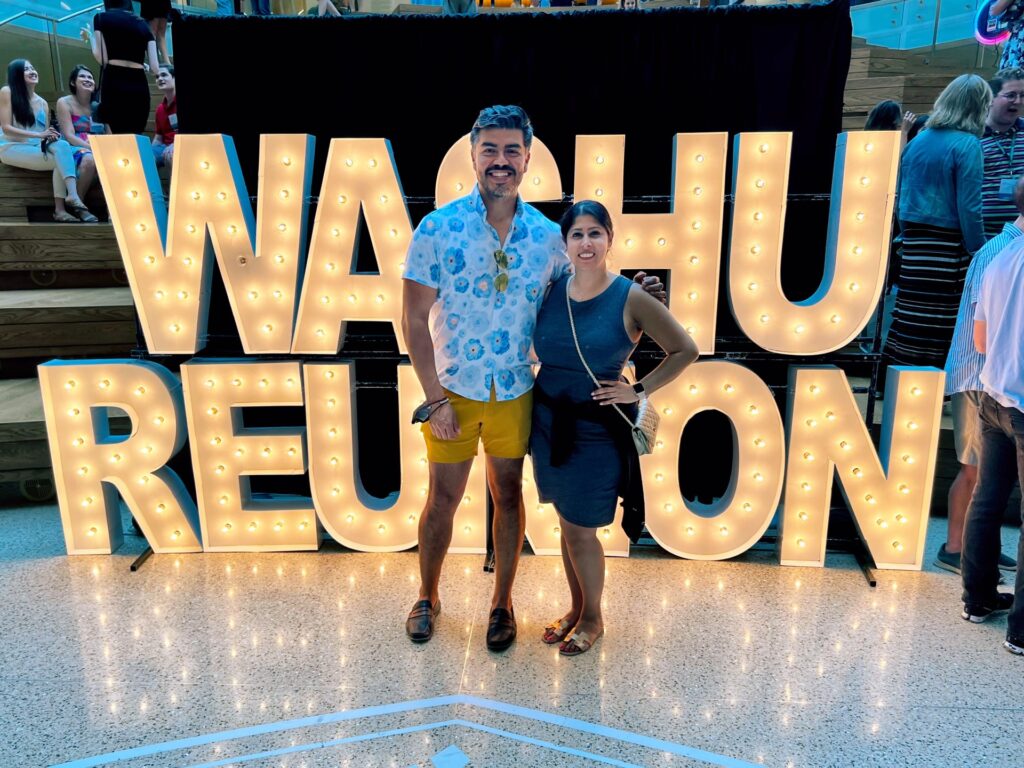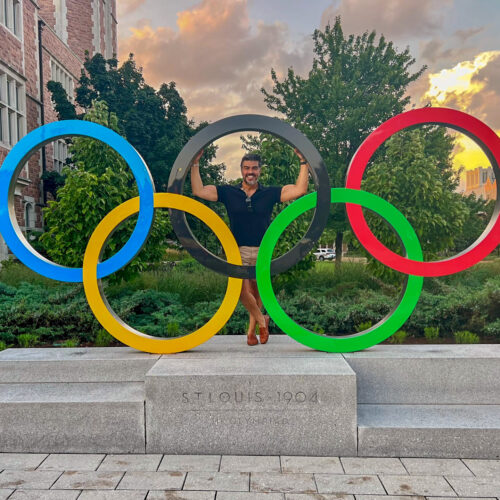By Matt Hampton | January 19, 2025
When he was a resident advisor at WashU, Mario Treto Jr., AB ’07, often stayed up until midnight, chatting with fellow students from all over the world. Now, as the head of one of Illinois’ lead regulatory agencies, Treto recalls those conversations fondly, saying that the global perspectives he encountered at WashU inform how he functions as a public official.
“When I’m making policy decisions, one thing that I truly enjoy is the ability to have civil discourse with my colleagues, with legislators, with stakeholders, and with industry groups because I like to take a step back and make sure that every voice is heard in a way that benefits humanity,” he says. “WashU gave me the opportunity to consider how different groups would look at the same problem through the lens of their unique lived experiences.”

In 2021, Illinois Gov. J.B. Pritzker appointed Treto as secretary of the Illinois Department of Financial and Professional Regulation. In this role, Treto works to strengthen protections for consumers in the state. His department oversees the licensing of over 1.2 million professionals and the regulation of banking and financial institutions.
Born and raised in Chicago, Treto majored in biology and psychology at WashU before earning a law degree at the Indiana University Maurer School of Law.
He credits his undergraduate experience with exposing him to diverse perspectives.
A nationally recognized lawyer including by the Hispanic National Bar Association and the National LGBT Bar, he advocates for diversity, equity, and inclusion both through his career in government service and activism. He formerly served as chair of a health center that focuses on the LGBTQ+ population. And as a deputy city attorney for Evanston, Illinois, he drafted a gender-affirming municipal human rights ordinance, and the city became the first in the state to offer gender-neutral public restrooms.
He has also been an involved WashU alumnus, serving as co-chair for each of his class reunions, volunteering with the Chicago Alumni and Parents Admissions Program committee, and presenting at alumni and recruitment events.
What do you see as the most significant impact of your current role?
It’s been exciting to be in the governor’s cabinet in a way that centers the human experience. My team regulates over 120 professions and industries, whether it be physicians, real estate brokers, cosmetologists, financial institutions, or, most recently, cannabis dispensaries. The regulatory standards that we set in Illinois aim to set the gold standard across the country from an equity perspective. It’s critical to make sure that we center the consumer protection experience of those who have historically been marginalized and haven’t had a seat at the table.
So, during my tenure at the department, we’ve been able to move the needle forward on several initiatives to protect individuals who historically have not been protected.

For example, my department is working with the administration to find ways that we can continue to protect gender-affirming and reproductive health care in the state of Illinois and champion access to those critical services, not only within Illinois, but also in collaboration with other states.
How did your undergraduate experience at WashU inform your current career?
WashU provided me with a global perspective that I really treasure. This perspective enriched my undergraduate experience and informed how I take diverse viewpoints into consideration as a public official.
Another thing that I’m grateful for when it comes to WashU is the meaningful connections and the chosen family that I built during my four years there, and how so many of those relationships have endured the test of time. I have a network of professionals in so many different areas. And for me, it’s been particularly helpful because, as I’m making decisions on regulating physicians, for example, I have a wide network of physicians who were all products of WashU. When I look at certified public accountants and their regulations, there are many graduates of the Olin Business School who provide me with their perspective as practitioners. So, I’m grateful on a personal level and professional level for the opportunities and the friendships that I made.
What was your experience like as a first-generation college student?

My parents are immigrants from Mexico, and they both had a sixth-grade education, and that was the maximum amount of education that anyone in my family had previously received. When my parents came to the United States in pursuit of the American dream, they knew and understood that having an education is important, but they weren’t familiar with the nuances of the college experience.
I was thankful to have a dean at my high school who became a bit of a mentor and encouraged me to apply to WashU. She also was helpful in connecting with my parents and helping them understand what FAFSA entails and what having your son go to a school that’s four and a half hours away would look like.
And then when I was at the university, there was an acclimation period because I truly had to explore the college experience on my own without any sort of anecdote from a family member.
But what has been helpful is that it paved the way for other family members to attend college after me: my two sisters and all my cousins. All of us look back fondly on the process and how it was scary at first, but now we’re thankful that we’ve had these opportunities.
How did you decide to pursue a career in law and policy?
Looking back, I’ve always seen law school as a possibility. My mother has fond memories of me when I was a little kid walking around with a briefcase, alleging that I was an attorney. But at the time I started at WashU, I thought I wanted to be a physician, so I followed the pre-med curriculum.
However, as I went through my four years there, I really enjoyed what advocacy looked like. The courses that I took at WashU informed how I look at the world. One of my favorite classes was a gender studies course that opened my eyes to issues that I hadn’t thought of in the way that that professor exposed me to.
And then I took some philosophy classes, and those were helpful as well. And I think, again, those experiences are what help you consider different perspectives and try to remain as objective as possible.
After graduating, I was an assistant director of undergraduate admissions at WashU for a couple of years. In that role, I enjoyed advocating for students and giving them an opportunity to have the same experience that I had. And my interest in advocacy continued from there.
